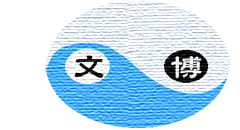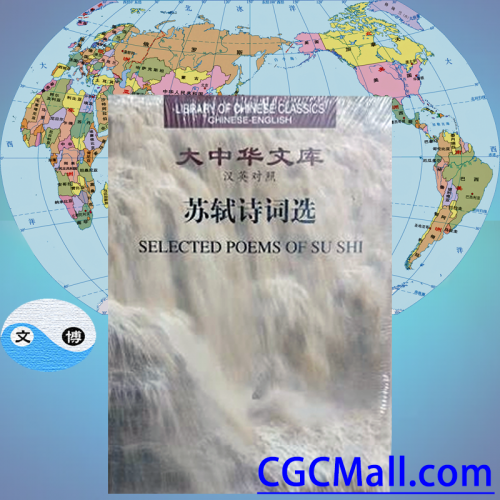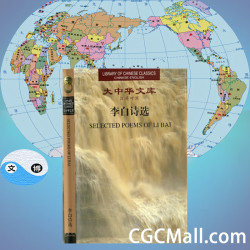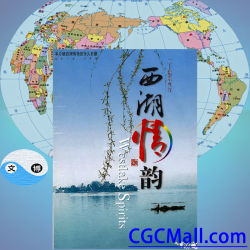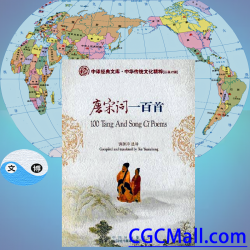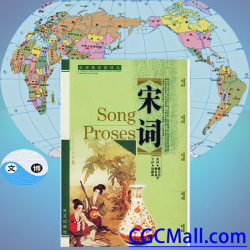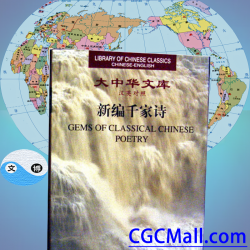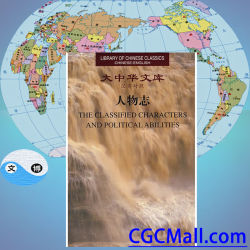Selected Poems of Su Shi (Chinese-English)
- Brand: Publishers of China
- Product Code: b-sushi-p-c-e-2008
- Availability: 2-3 Days
$29.99
- Price in reward points: 2999
Su Shi (1037–1101) was a writer, poet, artist, calligrapher, pharmacologist, and statesman of the Song Dynasty, and one of the major poets of the Song era. His courtesy name was Zizhan and his pseudonym was Dongpo Jushi (Resident of Dongpo), and he is often referred to as Su Dongpo. Besides his renowned poetry, his other existent writings are of great value in the understanding of 11th century Chinese travel literature as well as details of the 11th century Chinese iron industry.
Selected Poems of Su Shi
- Library of Chinese Classics Chinese-English
Translated into English by Xu Yuanchong
Published by Hunan People's Publishing House, 2008
Library binding book, dimensions 960 x 640, 1/16, 1 Volume, 249 pages
ISBN: 9787543850002
Su Shi was born in Meishan, near Mount Emei in what is now Sichuan province. Su's early education was conducted under a Taoist priest at a local village school. Later in his childhood, he studied under his mother, herself a highly educated woman. Su married at age 17. In 1057, when Su was 19, he and his brother Su Che passed the (highest-level) civil service examinations to attain the degree of jinshi, a prerequisite for high government office. His accomplishments at such a young age attracted the attention of Ouyang Xiu, who became Su's patron thereafter. Ouyang had already been known as an admirer of Su Xun, Su Shi's father, sanctioning his literary style at court and stating that no other pleased him more. When the 1057 jinshi examinations were given, Ouyang Xiu required—without prior notice—that candidates were to write in the ancient prose style when answering questions on the Confucian classics. The Su brothers gained high honors for what was deemed impeccable answers and achieved celebrity status.
Beginning in 1060 and throughout the following twenty years, Su held a variety of government positions throughout China; most notably in Hangzhou, where he was responsible for constructing a pedestrian causeway across the West Lake that still bears his name: sudi; his official career was also marked by a series of political setbacks which included appointments to remote minor posts, including to the then barbarous Hainan Island from the years 1097-1100.
Su Shi, together with his father Su Xun and his younger brother Su Che, were known as the "Three Sus" in the Song Dynasty literature. Around 2,700 of Su Song's poems have survived, along with 800 written letters. Su Dongpo excelled in the shi, ci and fu forms of poetry, as well as prose, calligraphy and painting. Some of his notable poems include the First and Second Chibifu (The Red Cliffs, written during his first exile), Nian Nu Jiao: Chibi Huai Gu (Remembering Chibi, to the tune of Nian Nu Jiao) and Shui diao ge tou (Remembering Su Che on the Mid-Autumn Festival). The two former poems were inspired by the 3rd century naval battle of the Three Kingdoms era, the Battle of Chibi in the year 208. The bulk of his poems are in the shi style, but his poetic fame rests largely on his 350 ci style poems. Su Shi also founded the haofang school, which cultivated an attitude of heroic abandon. In both his written works and his visual art, he combined spontaneity, objectivity and vivid descriptions of natural phenomena. Su Shi wrote essays as well, many of which are on politics and governance, including his Liuhoulun.
Su Shi is considered as the greatest Chinese writer of the 11th century. In 1982 the Commercial Press, Hong Kong, published Su Dongpo - a New Translation, including 100 poems and lyrics translated by Xu Yuan Zhong. The Selected Poems of Su Shi is an amplified version of the New Translation, including 85 poems and 55 lyrics.
宋代伟大诗人作家苏轼一生,才华通天却三次被贬,但是谁人不爱苏东坡?
汉英对照大中华文库:苏轼诗词选
作者:(宋)苏轼 作;许渊沖 英译
出版社:湖南出版社
出版日期:2007年9月
包装:精装一卷, 大16开, 249 页
ISBN:9787543850002
内容简介
苏轼(1037— 1101),别号东坡(东坡居士),是我国宋代最著名的诗人。林语堂在《苏东坡传》序言中说:像苏东坡这样富有创造力,这样刚正不阿,这样放任不羁,这样令人万分倾倒而又望尘莫及的高士,是人间不可无一、难得有二的。苏东坡有其迷人的魅力,犹如魅力之在女人,美丽芬芳之在花朵。苏东坡的人品,具有一个多才多艺的天才的深厚、广博,有高度的智力,有天真烂漫的赤子之心——正如耶稣所说“具有蛇的智慧。还兼有鸽子的温柔敦厚”。在这些方面,其他诗人是不能望其项背的。这些品质汇聚于一身,是天地间的凤毛麟角,不可能多见的。他保持天真纯朴,终身不渝。他的诗词文章,都是自然流露,顺乎天性,正如他所说的“春鸟秋虫之声”。从他的笔端,我们能听到人类情感之弦的振动,有喜悦,有愉快,有梦幻的觉醒,有顺从的忍受。苏东坡会因事发怒,但是他却不会恨人。因为恨别人,是自己无能的表现。苏东坡并非才不如人,因此也从不恨人。他的一生是载歌载舞,深得其乐,忧患来临,一笑置之。从佛教的否定人生,儒家的正视人生,道家的简化人生.这位诗人在心灵识见中产生了他混合的人生观。这一生,他只是永恒在刹那的一个微粒,他究竟是哪一个微粒,有何关乎重要?生命毕竟是不朽的、美好的。所以他尽情享受人生。这就是林语堂眼中的旷古奇才苏东坡。
作者简介
苏轼(1037—1101)是我国宋代最著名的多才多艺的作家。林语堂说他是“不可无一,难得有二”的高士。他自己说:“我一生之至乐在执笔为
文之时,心中错综复杂之情思,我笔皆能畅达之,我自谓人生之乐,未有过于此者。”他能把自己内在的情感移植到其他人或物的身上,使自己和其他人或物都得到超越。对人如《念奴娇》中的周瑜,《洞仙歌》中的美人;对物如《贺新郎》中的石榴,《水龙吟》中的杨花。这种超越使他脱离了个人世界,具有了普遍的,甚至是永恒的价值。例如他的代表作《赤壁怀古》,开始便说,“大江东去,浪淘尽,千古风流人物”,象征了词人对自由的向往,并把这种向往移植到大江波涛中去,既使大江具有了千古风流人物的英雄气概,又使词人心潮澎湃,超越小我,精神升华。诗人现实生活中充满了忧患和限制,而滔滔江水却可以冲决堤防,解放自己,使外部世界的江流和内部世界的心潮合而为一,这是对空间的超越;词人写千古风流人物对自己的同情,减少了内心的苦闷,可算是与古人同呼吸共命运,这是对时间的超越。超越时空,使这首词成了不朽之作。
目录
辛丑十一月十九日,既与子由别于郑
州西门之外,马上赋诗一篇寄之
和子由渑池怀旧
石鼻城
别岁
守岁
和子由“踏青”
十二月十四日夜微雪,明日早往南
溪小酌至晚
春夜
虞姬墓
游金山寺
自金山放船至焦山
腊日游孤山访惠勤惠思二僧
戏子由
除夜直都厅,囚系皆满,日暮不得返
舍,因题一诗于壁
雨中游天竺灵感观音院
六月二十七日望湖楼醉书三首
望海楼晚景三首
催试官考较戏作
冬至日独游吉祥寺
吴中田妇叹
法惠寺横翠阁
饮湖上初晴后阿
新城道中
於潜女
有美堂暴雨
[行香子]过七里濑
[行香子]丹阳寄述古
[行香子]述怀
[江城子]湖上
书双竹湛师房
[昭君怨](谁作桓伊三弄)
八月十五日看潮五绝
[瑞鹧鸪]观潮
陌上花三首
[虞美人]有美堂赠述古
[少年游]代人寄远
[醉落魄]离京口作
……
Tags: libraray of Chinese classics, Su Shi, Ancient Poetry, Song Dynasty, Hangzhou, West Lake
Related Products
Selected Poems of Li Bai (Chinese-English)
Li Bai is a poet representing the Tang Dynasty culture. He is best known for the extravagant imagina..
West Lake Spirits - 20 TV Documentary Film Series (DVD)
The historical and culture value of West Lake--a famous freshwater lake located in central Hangzhou ..
100 Tang and Song Ci Poems
This book selects 100 lyrics by more than forty famous poets during the Tang and the Song Dynasties,..
Ancient Poems: Song Proses (Modern Chinese and English Text)
Song Proses is a unique collection of classical Chinese "ci" poetic gems rendered into naturally flo..
Gems of Classical Chinese Poetry (Chinese-English)
This is a new Chinese-English edition of Gems of Classical Chinese Poetry. Xu Yuan Zhong, the Englis..
The Classified Characters and Political Abilities (Chinese-English Book)
the earliest works in China that gives a clear and systematic exposition of the talent, personalitie..
